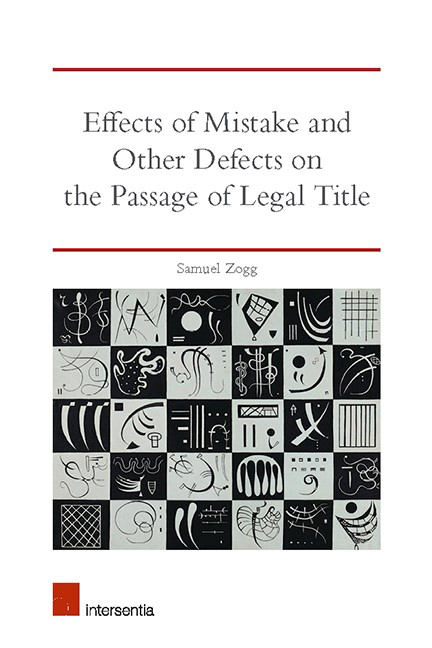Book contents
- Frontmatter
- Dedication
- Preface
- Acknowledgements
- Contents
- List of Cases
- List of Abbreviations
- Chapter 1 An Introduction to Defective Transfers of Property
- Chapter 2 Transfer of Legal Ownership in Tangible Movable Property
- Chapter 3 Defects which Prevent the Passage of Legal Ownership
- Chapter 4 Fundamental Mistake in Particular
- Chapter 5 Conclusion
- Bibliography
- Index
- About the Author
Chapter 4 - Fundamental Mistake in Particular
Published online by Cambridge University Press: 09 November 2019
- Frontmatter
- Dedication
- Preface
- Acknowledgements
- Contents
- List of Cases
- List of Abbreviations
- Chapter 1 An Introduction to Defective Transfers of Property
- Chapter 2 Transfer of Legal Ownership in Tangible Movable Property
- Chapter 3 Defects which Prevent the Passage of Legal Ownership
- Chapter 4 Fundamental Mistake in Particular
- Chapter 5 Conclusion
- Bibliography
- Index
- About the Author
Summary
We shall finally turn to the most difficult type of defect, namely mistake. A profound analysis of the effects of mistakes necessitates a strict distinction between three different levels where it might respectively operate: Property, contract and unjust enrichment. In particular, a mistake's effects need not be the same on the contractual level as on the proprietary plane. A mistake might render a contract void but leave unaffected the proprietary transfer (conveyance), which is abstract. Yet, the converse is arguably impossible, unless the defect has only occurred in the execution but not in the formation stage. The range of real defects is narrower than the range of obligatory defects. A mistake which is unable to render a contract void may not at the same time still prevent the passage of property. But not every mistake which is serious enough to render a contract void is also sufficient to prevent property from passing.
It has already been pointed out that the standard terminology in the context of mistakes is rather confused and that it is – unless unambiguous from the context – convenient to refer to proprietarily fundamental mistakes, i.e. mistakes that prevent the passage of property, as opposed to contractually fundamental mistakes, i.e. mistakes that render contracts void.
We shall start our analysis with a brief overview of mistakes which may render contracts void (contractually fundamental mistakes) before turning to the difficult question as to which of them might equally prevent the passage of property (proprietarily fundamental mistakes). Courts and commentators have so far developed three very narrow categories of mistakes which may prevent legal ownership from passing, namely (i) mistakes as to the transferee's identity, (ii) mistakes as to the transferred property's identity and (iii) mistakes as to the transferred property's quantity. It accordingly appears that mistakes are only proprietarily fundamental in quite extreme cases where the transferor's intention to carry out the transfer in question is virtually absent. Crucially, the mistake must relate to the transfer of property as such rather than merely to the motivation why – but not that – a certain transfer shall be made. Only the former but not the latter type of mistake may be proprietarily fundamental.
- Type
- Chapter
- Information
- Publisher: IntersentiaPrint publication year: 2019



